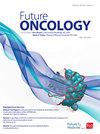简单的语言总结:种族或收入状况是否影响转移性去势敏感前列腺癌(mCSPC)患者在美国接受的癌症治疗?
IF 3
4区 医学
Q2 ONCOLOGY
引用次数: 0
摘要
本文章由计算机程序翻译,如有差异,请以英文原文为准。
Plain language summary: does race or income status affect the cancer treatments that patients with metastatic castration-sensitive prostate cancer (mCSPC) receive in the United States?
求助全文
通过发布文献求助,成功后即可免费获取论文全文。
去求助
来源期刊

Future oncology
ONCOLOGY-
CiteScore
5.40
自引率
3.00%
发文量
335
审稿时长
4-8 weeks
期刊介绍:
Future Oncology (ISSN 1479-6694) provides a forum for a new era of cancer care. The journal focuses on the most important advances and highlights their relevance in the clinical setting. Furthermore, Future Oncology delivers essential information in concise, at-a-glance article formats - vital in delivering information to an increasingly time-constrained community.
The journal takes a forward-looking stance toward the scientific and clinical issues, together with the economic and policy issues that confront us in this new era of cancer care. The journal includes literature awareness such as the latest developments in radiotherapy and immunotherapy, concise commentary and analysis, and full review articles all of which provide key findings, translational to the clinical setting.
 求助内容:
求助内容: 应助结果提醒方式:
应助结果提醒方式:


